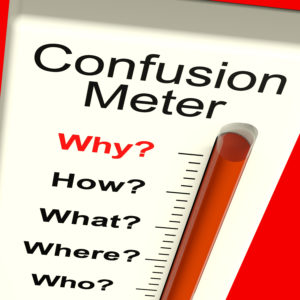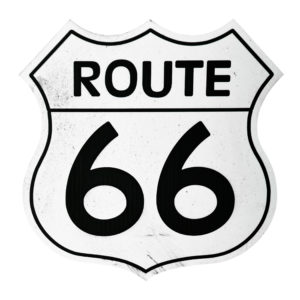Quick links, bringing you great articles on writing from all over the web.
When is the best time to start marketing your book and looking for an audience? Before you even start writing it! Head on over to the Self Publishing Advice Center of ALLI and find great ideas for building your author platform or improving the one you got! I am taking notes!
~ * ~
5 steps To Building A Successful Author Platform Before you Publish: Donna Galanti
 This post is part of Frankfurt Book Fair Indie Author Fringe, an online author conference that showcases the best self-publishing advice and education for authors across the world — harnessing the global reach of the Alliance of Independent Authors’ network. Our self-publishing conference features well-known indie authors and advisors, for 24 sessions over 24-hours, in a one-day extravaganza of self-publishing expertise straight to your email inbox.
This post is part of Frankfurt Book Fair Indie Author Fringe, an online author conference that showcases the best self-publishing advice and education for authors across the world — harnessing the global reach of the Alliance of Independent Authors’ network. Our self-publishing conference features well-known indie authors and advisors, for 24 sessions over 24-hours, in a one-day extravaganza of self-publishing expertise straight to your email inbox.
We hope you enjoy this session. Let us know if you have any questions or input on this self-publishing topic. Visit our Hot Seat and join in the conversation there, or leave your questions and feedback in the comments section below.
Read the full post on Self Publishing Advice Center

 For many authors, psychology is a godsend, lending them new insights into
For many authors, psychology is a godsend, lending them new insights into  “Oh, I want to write today, but I just don’t have the time!”
“Oh, I want to write today, but I just don’t have the time!” I just attended the Writer’s Digest Conference and as always, I returned home tired and full of inspiration. But there’s something that has stuck in my mind that is nagging at me. Saturday afternoon, I was sitting in the lobby, chatting with several aspiring writers who had a lot of questions about the industry and genre categories among other things. At one point, I overheard a conversation between two attendees adjacent to me. One of the writers turns to another and says, “Isn’t this so great? I’ve met a lot of people, exchanged cards with them.” Etc. Etc. But the other person shrugged and said, “I guess, but I think it’s lame the way these things are all about sponging off of the wannabes to make a bunch of money.”
I just attended the Writer’s Digest Conference and as always, I returned home tired and full of inspiration. But there’s something that has stuck in my mind that is nagging at me. Saturday afternoon, I was sitting in the lobby, chatting with several aspiring writers who had a lot of questions about the industry and genre categories among other things. At one point, I overheard a conversation between two attendees adjacent to me. One of the writers turns to another and says, “Isn’t this so great? I’ve met a lot of people, exchanged cards with them.” Etc. Etc. But the other person shrugged and said, “I guess, but I think it’s lame the way these things are all about sponging off of the wannabes to make a bunch of money.” I’ve spent the last eight months writing a novel, and I’m now closing in on the finish.
I’ve spent the last eight months writing a novel, and I’m now closing in on the finish. If you’ve written nonfiction for any length of time, particularly if you write in a specialized “niche,”it’s possible to reach a point when you feel as if you’ve run out of fresh ideas. You’ve done all the seasonal stories, covered all the breaking developments in your field—and the ideas for your next feature just aren’t coming. You’ve reached what we in the industry politely refer to as a “dry spell,” although when you’re in one, it more often feels like you’ve crash-landed in the desert.
If you’ve written nonfiction for any length of time, particularly if you write in a specialized “niche,”it’s possible to reach a point when you feel as if you’ve run out of fresh ideas. You’ve done all the seasonal stories, covered all the breaking developments in your field—and the ideas for your next feature just aren’t coming. You’ve reached what we in the industry politely refer to as a “dry spell,” although when you’re in one, it more often feels like you’ve crash-landed in the desert. As we’re going deeper into the ten key scenes you need for the first layer in your novel, I want to explore the midpoint some more. I wrote about that 50% mark of your novel in
As we’re going deeper into the ten key scenes you need for the first layer in your novel, I want to explore the midpoint some more. I wrote about that 50% mark of your novel in  Today I’m talking with Australian author John Birmingham about his journey from the dizzying heights of the traditional publishing scene, to deciding to go indie and hybrid and his insights into how the publishing industry has changed. It’s an honest and really fascinating interview.
Today I’m talking with Australian author John Birmingham about his journey from the dizzying heights of the traditional publishing scene, to deciding to go indie and hybrid and his insights into how the publishing industry has changed. It’s an honest and really fascinating interview. by John Herrick
by John Herrick Warning: Hacks for Hacks tips may have harmful side effects on your writing career, and should not be used by minors, adults, writers, poets, scribes, scriveners, journalists, or anybody.
Warning: Hacks for Hacks tips may have harmful side effects on your writing career, and should not be used by minors, adults, writers, poets, scribes, scriveners, journalists, or anybody. I remember how stressed I was whenever I had a book launch for Penguin Random House.
I remember how stressed I was whenever I had a book launch for Penguin Random House. After finding myself backed into a creative corner with Canyon Echoes, and using a rudimentary version of outlining to get myself out, I was still reluctant to embrace the plotter program. I had been a pantser for nearly 20 years and the idea of changing the way I wrote was daunting. A little outlining had saved Canyon Echoes, but my fear of losing the creative flow was simply too great.
After finding myself backed into a creative corner with Canyon Echoes, and using a rudimentary version of outlining to get myself out, I was still reluctant to embrace the plotter program. I had been a pantser for nearly 20 years and the idea of changing the way I wrote was daunting. A little outlining had saved Canyon Echoes, but my fear of losing the creative flow was simply too great. Many pulp writers of old made good bank with a hit series character.
Many pulp writers of old made good bank with a hit series character. What Makes An Iconic Character? (And How Can You Create One?)
What Makes An Iconic Character? (And How Can You Create One?) Why is it so many new novels are—to be blunt—crap? How can we find an author we love with one book, then all the love goes away with the next? What’s going wrong? What’s missing? Where did everything go wrong?How can we learn and do better?
Why is it so many new novels are—to be blunt—crap? How can we find an author we love with one book, then all the love goes away with the next? What’s going wrong? What’s missing? Where did everything go wrong?How can we learn and do better?